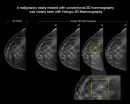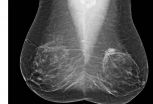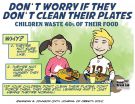(Press-News.org) CHICAGO - According to a new long-term study, diabetic patients with even mild coronary artery disease face the same relative risk for a heart attack or other major adverse heart events as diabetics with serious single-vessel obstructive disease. Results of the study were presented today at the annual meeting of the Radiological Society of North America (RSNA).
Researchers at the University of British Columbia and St. Paul's Hospital in Vancouver analyzed data from the Coronary CT Angiography Evaluation For Clinical Outcomes: An International Multicenter (CONFIRM) Registry, which was developed to examine the prognostic value of cardiac computed tomography angiography (CCTA) for predicting adverse cardiac events related to coronary artery disease. The registry, which has CCTA data on 40,000 patients from 17 centers around the world, now has five-year follow-up data on 14,000 patients.
"The CONFIRM Registry is the largest long-term data set available and allowed us to evaluate the long-term prognostic value of CCTA in diabetic patients," said study co-author Jonathan Leipsic, M.D., vice chairman of the Department of Radiology at the University of British Columbia.
The researchers analyzed data on 1,823 diabetic patients who underwent CCTA to detect and determine the extent of coronary artery disease, in which a waxy substance called plaque builds up inside the arteries of the heart. This plaque buildup causes the artery wall to thicken, which limits or, in some cases, completely obstructs blood flow.
Men and women (median age 61.7) in the study were categorized as having no coronary artery disease, mild disease (less than 50 percent of coronary artery narrowed), or obstructive disease (more than 50 percent artery obstruction). Over a 5.2-year follow-up period, there were 246 deaths, representing 13.5 percent of the total study group.
Major adverse cardiovascular event (MACE) data was available on 973 patients. During the follow-up period, 295 (30.3 percent) of the patients experienced a MACE, such as heart attack or a procedure to re-open an obstructed artery called a coronary revascularization.
The researchers found that both obstructive and mild, or non-obstructive, coronary artery disease as determined by CCTA were related to patient deaths and MACE. Most importantly, the study found that the relative risk for death or MACE for a patient with mild coronary artery disease was comparable to that of patients with single vessel obstructive disease.
"Until now, two-year follow-up studies suggested that a diabetic patient with mild or non-obstructive coronary artery disease had a lower risk of major adverse cardiovascular events and death than patients with obstructive disease," said co-author Philipp Blanke, M.D, radiologist at the University of British Columbia and St. Paul's Hospital. "Our five-year follow-up data suggests that non-obstructive and obstructive coronary artery disease as detected by cardiac CTA in diabetic patients are both associated with higher rates of mortality."
Dr. Leipsic said researchers need a better understanding of the evolution of plaque in the arteries and patient response to therapies.
"Cardiac CT angiography is helpful for identifying diabetic patients who are at higher risk for heart events, who may benefit from more aggressive therapy to help modify that risk," added Dr. Leipsic.
INFORMATION:
Co-authors on the study include Bruce Precious, M.D., Sasi R Ganga Raju, M.B.Ch.B., Iksung Cho, M.S., Hyuk-Jae Chang, M.D., Fay Lin, M.D., Stephan Achenbach, M.D., Daniel S. Berman, M.D., Matthew J. Budoff, M.D., Tracy Q. Callister, M.D., Mouaz Al-Mallah, M.D., Filippo Cademartiri, M.D., Ph.D., Kavitha M. Chinnaiyan, M.D., Benjamin Chow, M.D., Allison Dunning, M.S., Augustin Delago, M.D., Todd C. Villines, M.D., Martin Hadamitzky, M.D., Jorg Hausleiter, M.D., Leslee Shaw, Ph.D., Philipp A. Kaufmann, M.D., Ricardo C. Cury, M.D., Gudrun Feuchtner, M.D., Yong-Jin Kim, M.D., Erica Maffei, M.D., Gilbert Raff, M.D., Gianluca Pontone, M.D., Daniele Andreini, M.D., Hugo M. Marques, M.D., Ronen Rubinshtein, M.D., Millie Gomez, M.D., and James K. Min, M.D.
Note: Copies of RSNA 2014 news releases and electronic images will be available online at RSNA.org/press14 beginning Monday, Dec. 1.
RSNA is an association of more than 54,000 radiologists, radiation oncologists, medical physicists and related scientists, promoting excellence in patient care and health care delivery through education, research and technologic innovation. The Society is based in Oak Brook, Ill. (RSNA.org)
For patient-friendly information on CCTA, visit RadiologyInfo.org.
CHICAGO - A major new study being presented at the annual meeting of the Radiological Society of North America (RSNA) has found that digital breast tomosynthesis, also known as 3-D mammography, has the potential to significantly increase the cancer detection rate in mammography screening of women with dense breasts.
Breasts are considered dense if they have a lot of fibrous or glandular tissue but not much fatty tissue. Research has shown that dense breasts are more likely to develop cancer, a problem compounded by the fact that cancer in dense breasts can be difficult ...
CHICAGO - A study of breast cancers detected with screening mammography found that strong family history and dense breast tissue were commonly absent in women between the ages of 40 and 49 diagnosed with breast cancer. Results of the study were presented today at the annual meeting of the Radiological Society of North America (RSNA).
"Screening recommendations for this age group continue to be debated," said Bonnie N. Joe, M.D., Ph.D., associate professor in residence and chief of women's imaging at University of California, San Francisco (UCSF). "Recent publications ...
CHICAGO - Patients value direct, independent access to their medical exams, according to a new study presented at the annual meeting of the Radiological Society of North America (RSNA).
Fragmentation of health information among physicians, healthcare institutions or practices, and inefficient exchange of test results can decrease quality of care and contribute to high medical costs. Improving communications and giving patients more control over their care are critical goals of health IT initiatives.
"Easy and timely electronic access to an online unified source of ...
Disparities in mental-health treatment are known to be associated with patients' racial and ethnic backgrounds. Now, a large study by researchers with UC Davis has found one possible reason for those disparities: Some racial and ethnic minorities are less likely to be assessed and referred for treatment by their medical providers.
The study of more than 9,000 diverse individuals, including Latinos, African-Americans, Asian-Americans and non-Hispanic whites, found that patients of different racial and ethnic backgrounds reported experiencing differing treatment approaches ...
ANN ARBOR, Mich. -- Patients with head and neck cancer who used antacid medicines to control acid reflux had better overall survival, according to a new study from the University of Michigan Comprehensive Cancer Center.
Reflux can be a common side effect of chemotherapy or radiation treatment for head and neck cancer. Doctors at the University of Michigan frequently prescribe two types of antacids - proton pump inhibitors or histamine 2 blockers - to help treat this side effect.
The researchers looked at 596 patients who were treated for head and neck cancer. More than ...
Sons whose fathers have criminal records tend to have lower cognitive abilities than sons whose fathers have no criminal history, data from over 1 million Swedish men show. The research, conducted by scientists in Sweden and Finland, indicates that the link is not directly caused by fathers' behavior but is instead explained by genetic factors that are shared by father and son.
The study is published in Psychological Science, a journal of the Association for Psychological Science.
"The findings are important because cognitive ability is among the most important psychological ...
EVANSTON, Ill. --- Birth weight makes a difference to a child's future academic performance, according to new Northwestern University research that found heavier newborns do better in elementary and middle school than infants with lower birth weights.
Led by a multidisciplinary team of Northwestern researchers, the study raises an intriguing question: Does a fetus benefit from a longer stay in the mother's womb?
"A child who is born healthy doesn't necessarily have a fully formed brain," said David Figlio, one of the study's authors and director of Northwestern's Institute ...
Gorlin syndrome causes an increased risk of developing cancers of the skin and, rarely, in the brain. Around 1 in 30,000 people has the condition.
Most people with Gorlin syndrome have a change in a gene called PTCH1, but the new research has revealed that changes in a gene called SUFU also cause Gorlin syndrome and it is children with a change in SUFU that are 20 times more likely to develop a brain tumour.
Dr Miriam Smith, a lecturer in cancer genomics from the University's Institute of Human Development led the research, which was also carried out with The Christie ...
Whereas most adults are members of the Clean Plate Club, they eat an average of about 90% of the food they serve themselves, this is not true for children.
New Cornell research aggregated six different studies of 326 elementary school-aged children. It showed that, if their parents are not around, the average child only eats about 60% of what they serve themselves. More than a third goes right in the trash.
Unlike adults, kids are still learning about what foods they like and how much it will take to fill them up. "It's natural, for them to make some ...
Vitamin D supplements can reduce COPD lung disease flare-ups by over 40% in patients with a vitamin D deficiency - according to new research from Queen Mary University of London. COPD (chronic obstructive pulmonary disease) includes conditions such as chronic bronchitis and emphysema, and is thought to affect more than 3 million people in the UK.
The NIHR-funded randomised trial, published in the journal Lancet Respiratory Medicine, included 240 patients with COPD in and around London. Half of the patients (122) received vitamin D supplements (6 x 2-monthly oral doses ...


